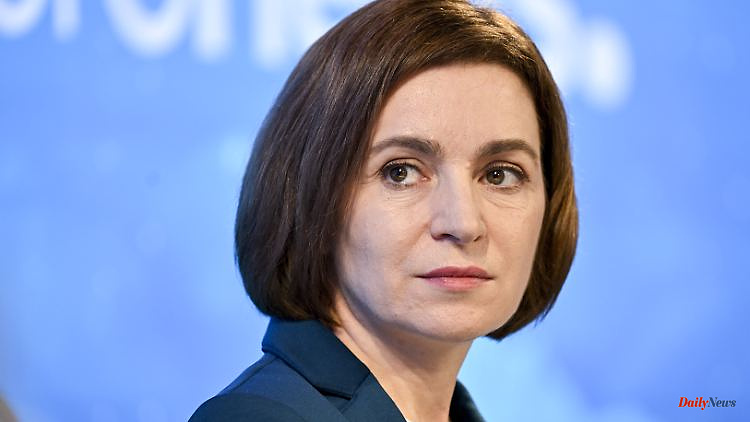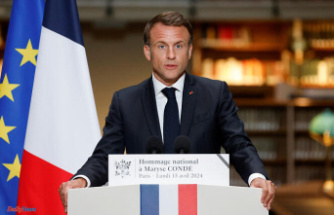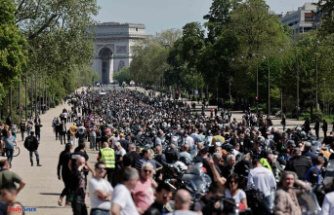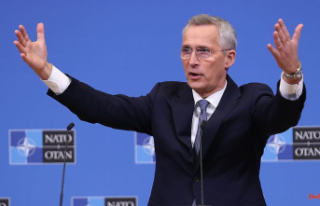Concerns of a coup are growing in Moldova, not least because of secret service documents that the country is receiving from Ukraine. They should show possible coup plans from Moscow. President Maia Sandu is combative. The country is in the midst of a change of government.
The small Republic of Moldova is increasingly in the focus of world politics. At a recent EU summit in Brussels, Ukraine's President Zelenskyy warned that his secret service had intercepted information suggesting Russia was planning to take political control of the country. President Maia Sandu has now confirmed in a statement that the government has received documents from Ukraine "concerning the organization of various subversive activities". She also warned against violence that could force a change of power in the capital, Chinisau.
Accordingly, Sandu said in a briefing: "Through violent actions disguised as protests by the so-called opposition, they want to force a change of power in Chisinau. The documents that we received from our Ukrainian partners show good documentation of the locations and logistical aspects for organizing these subversive activities."
Moldova has had turbulent days. Shortly after Ukrainian President Zelenskyy informed the world about the possible Russian coup plans, Moldova accused Russia of firing a rocket over the country. Again only a short time later Prime Minister Natalia Gavrilita announced her resignation. In the future, Interior Minister Dorin Recean will be in charge of government affairs.
Both Recean and Sandu are pro-European, which Moscow sees critically. Russian Foreign Minister Sergey Lavrov recently approached the president and said, with a view to her pro-European course and possible NATO membership, she was "ready for practically anything". In his view, Moldova is also the West's next "anti-Russian" project.
Meanwhile, the Moldovan President assured that state institutions would work to prevent provocations by Russia to seize power. At the same time, she appealed: "I would like to ask you to remain vigilant, be careful and believe official information, because the most aggressive form of attack is information attack. The Kremlin's attempts to bring violence to our country will not succeed. We should remain calm. Let's believe in Moldova."
In addition to the pro-European population, there is also a pro-Russian side in the small republic - above all in the split-off region of Transnistria, which is ruled by pro-Russian separatists. Around 1,500 Russian soldiers are said to be stationed there. Last September, the Kremlin threatened the republic with military action should the security of Russian troops in Transnistria be threatened.
The former Soviet republic with around 2.5 million inhabitants is struggling with rapidly increasing inflation. She also has to cope with the influx of Ukrainian refugees.












